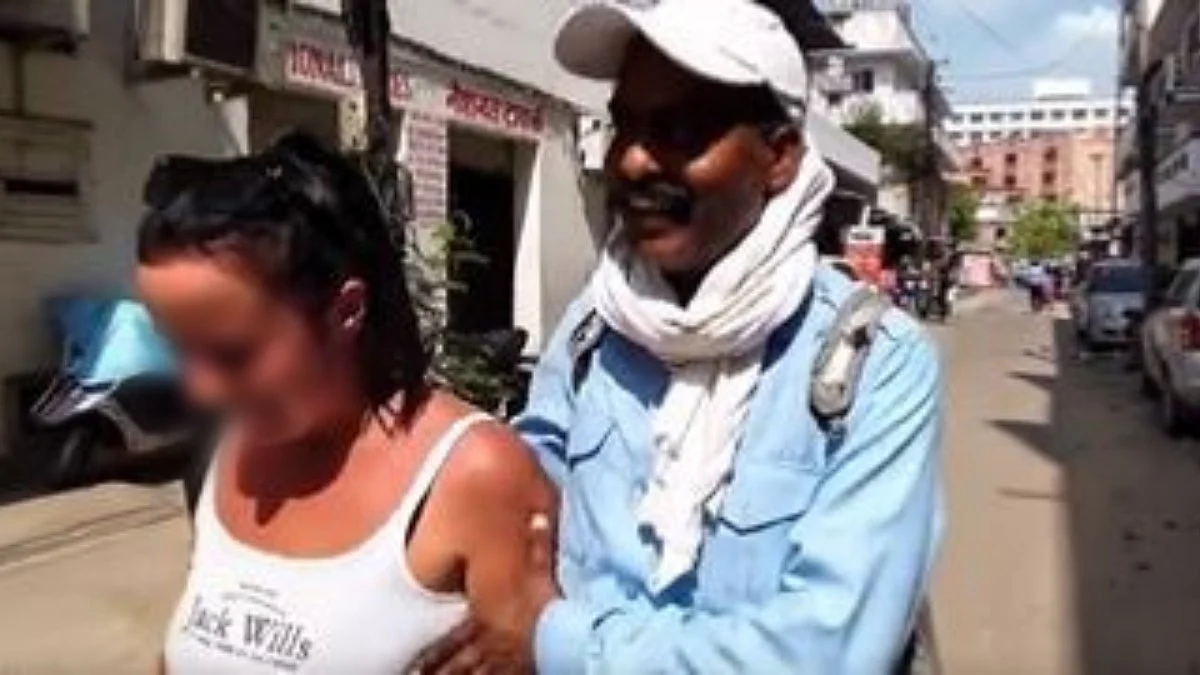News reports on June 23 told us that a woman was stripped and molested by three men in a general compartment near Gwalior and then thrown off the speeding train, along with her male companion, for resisting a gang-rape attempt.
Both were severely injured. The man covered her with his torn clothes and carried her for five km through dense jungle, in pouring rain, to get medical help. They were rebuffed by two villages but at the third an elderly couple took them in, gave her a saree, tended to their wounds and helped them reach a hospital.

The incident happened on June 19 and the two were recuperating in hospital. Police were trying to identify suspects and potential witnesses from CCTV footage.
No one, apart from two elderly co-passengers, responded to their pleas for help as three men stripped the woman and tried to force themselves on her, the survivor told police. Recounting her ordeal, the survivor has told police that around 60 passengers were in the general coach but no one helped them. This is not just shocking but also a reflection of the times we're living in.
Whether a boat turns turtle with hundreds of poor illegal immigrants in the waters of Greece, a man dies on the street bleeding and dismembered or a woman is raped and disrobed in public, we seem to have become insouciant about all these happenings that ought to have moved us.
Now the question arises as to whether humans are capable of feeling emotion, or are they intrinsically insensitive? In other words, is sensitivityin humans intrinsic or acquired? Why don’t we react to situations that call for our valid and genuine reactions? This is the question that's being asked by those who still have a semblance of sense, sensibility and sensitivity. Before that, it’s imperative to understand what we mean by sensitivity. Sensitivity is a reflex and spontaneous human behaviour extended not just to fellow humans but to all that one comes across. In other words, the purview or ambit of sensitivity is pretty large as it encompasses a gamut of (human) emotions.
Humans are basically sensate. We feel and emote. But the problem is, we often fail to register our sensitivity through our actions. Sigmund Freud’s contemporary Alfred Adler categorised humans into four sections on the basis of the level or intensity of their sensitivity or absence of it: HSP (Highly Sensitive People)/ SP (Sensitive People)/ PMLS (People with Middle Level Sensitivity) and the 4th one: PNS (People with No Sensitivity). Adler opines that only 20% of people fall in the category of HSP. Most of us belong to SP and PMLS and surprisingly only 5-6% of people are completely devoid of any emotions or sensitivity. So, when Sahil brutally stabbed and bludgeoned Sakshi in Delhi and bystanders saw without intervening, or this 32-year-old woman was stripped and nearly 60 people in the compartment watched but no one dared help her, did these seemingly insensitive onlookers fall into the last category, which states that only 5-6% of people are devoid of sensitivity? It’s a moot question.
Psychologists and sociologists believe that apart from the Bystander Syndrome, most of us want to help the victim but don't come forward to help because of individual or social inertia. We know something wrong is happening and it must be stopped. Yet, we don’t want to get involved. We all have the mentality of the venerable elders in the court of Dhritrashtra when Draupadi was being disrobed by Dushshasan but all Pandavas as well as Bhishma, Drona and other “worthies” just condemned but did nothing constructive. None of them thought of stopping Dushashan (by force) because they were all gripped by socio-individual inertia.
What happened nearly 4,000 years ago in the court of the Kauravas is still happening because basic human nature has hardly changed. Humanevolution is still a slow and imperceptible process. We feel bad and sad, but do nothing. It’s like, “Sahil ke tamashai har doobne wale par/ Afsos toh karte hain imdaad nahin karte” (The people standing on the seashore want to save the drowning man/ Alas, they do nothing worthwhile to save the person). This is what we call impotent or ineffectual sensitivity. At the same time, highly sensitive people are too often perceived as weaklings or damaged goods. To feel intensely is not a symptom of weakness, it is the trademark of the truly alive and compassionate. It is notthe empath who is broken, it is society that has become dysfunctional and emotionally disabled. There is no shame in expressing our authentic feelings. Those who are at times described as being a 'hot mess' or having 'too many issues' are the very fabric of what keeps the dream alive for a more caring, humane world. Never be ashamed to let your tears shine a light in this world. Alas, HSPs are few and far between in the world and they often relate to the poetess Sanober Khan, “Sometimes I think, I need a spare heart to feel all the things I feel.” But one must remember that to be sensitive means facing and experiencing all the pains and suffering of the world: “Khuda ke fazl se tu deedawar nahin varna/ Har ek phool pe tujhe zakhm ka gumaan hota” (Good that you're not so sensitive/ Otherwise, every flower would have appeared injured to you). This is the flip side to being too sensitive! Widespread and deep-rooted insensitivity also affects and impacts the sensitivity of those who are endowed with it. So, initially sensitive people also become inert and insensitive like the rest of us.
Only with complete evolution (that will take nearly 1 lakh years more) shall we all become able to feel sensitive and ready to activate thatsensitivity into a positive action. Let that take lakhs of years; we must never get disheartened.
Sumit Paul is a regular contributor to the world’s premier publications and portals in several languages







.jpg)



